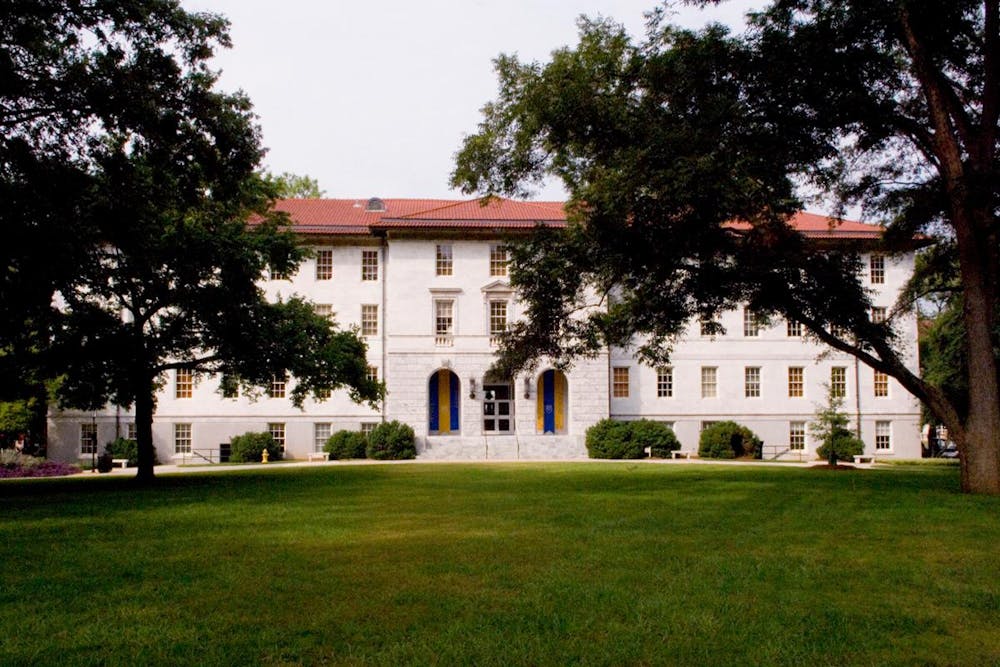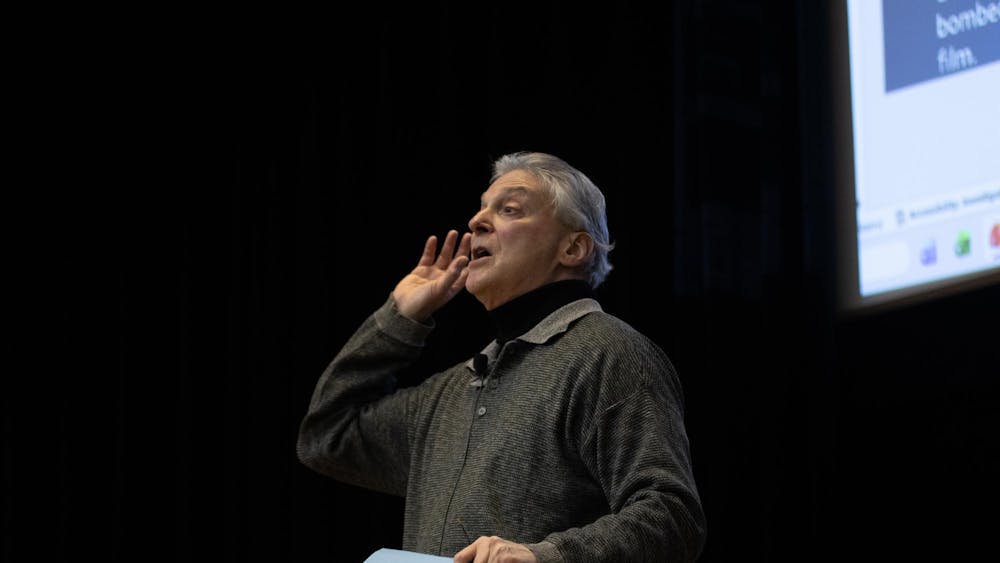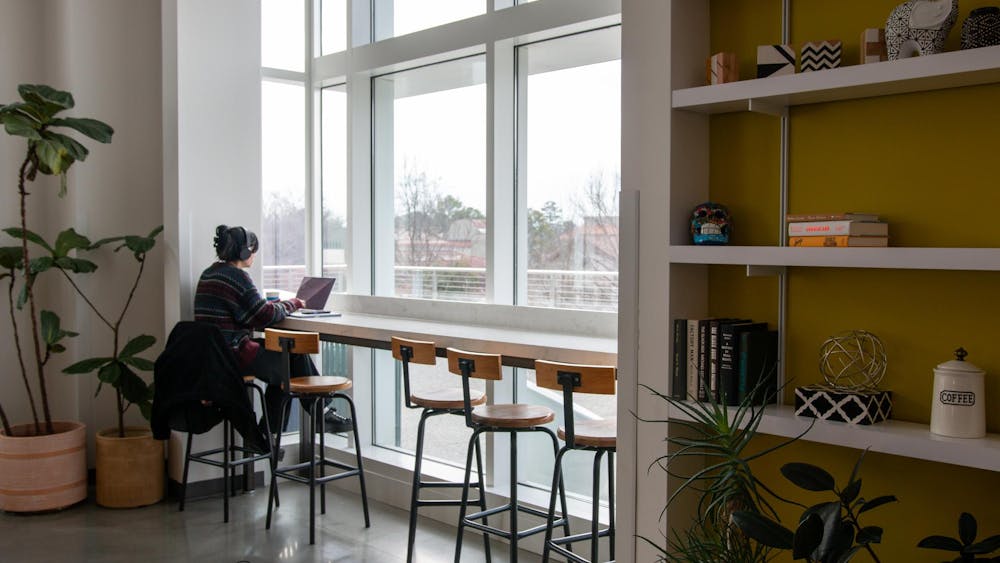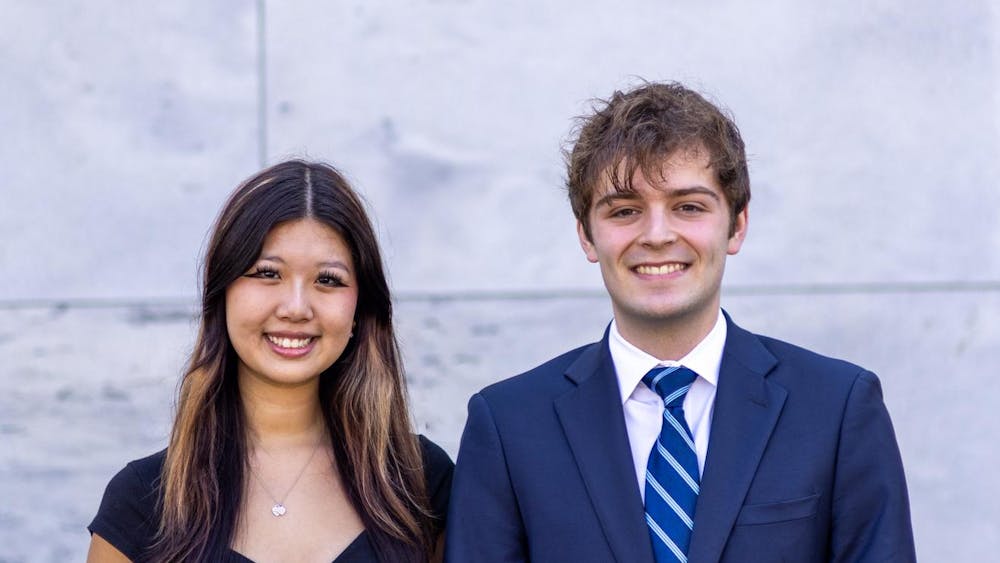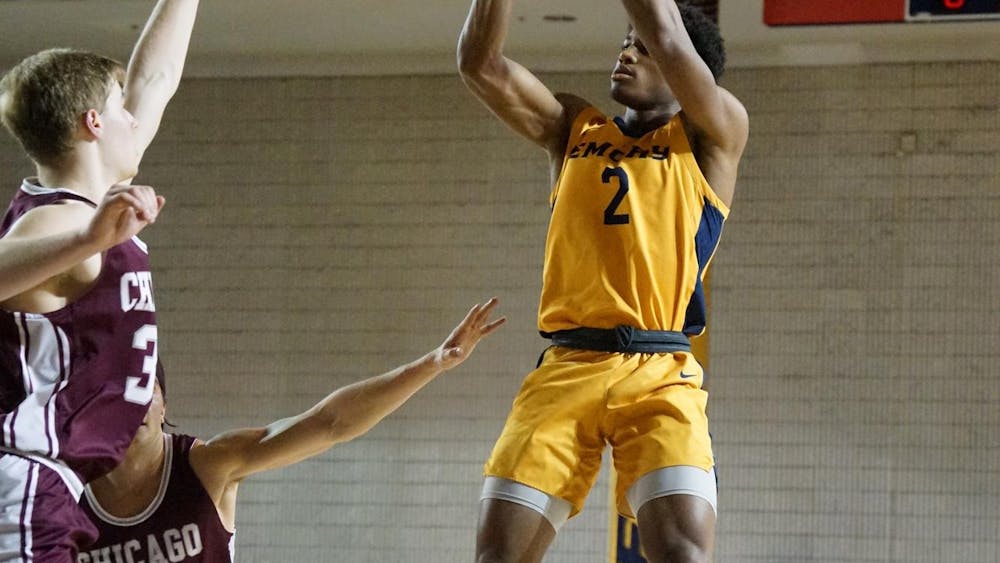Despite the many ways students’ undergraduate experiences differ, there is one common thread between all of them: relationships. Relationships that decay — with family or friends back home — and those that blossom as shared new experiences forge connection.
However, one often overlooked, but no less crucial, category of college relationships are those between students and their professors and mentors. Professionals, academics and community leaders often shape students’ educational journey and ultimately influence how they view the world around them.
As the Class of 2025 graduates from Emory University, their closest personal relationships are bound to change again. But the working relationships with their professors and mentors here at Emory — and the knowledge gleaned from those lectures, office hours and intensive collaborations — will persist, forever imprinted on the students graduating into the wider world, allowing them to take what they’ve learned at university with them.
For the 2025 Graduation Magazine, the Arts & Life section decided to pay tribute to these integral and invaluable relationships. Three pairs of students and professors sat down to have a conversation about their shared experiences, the professors’ professional goals, life in general and everything in between.
This Q&A collection has been edited for clarity and length.
The first student-professor pair to sit down was Madeline Davis (25C) — a neuroscience and behavioral biology major — and Andrew Kazama — an associate teaching professor of psychology and a research associate at Emory’s National Primate Research Center.
Kazama: What do you think makes a great professor to you?
Davis: Someone who is really dedicated to helping their students succeed, both in the course and overall. I think somebody who is really willing to help the student overall with their success at Emory, but also their success within the course. So, helping with study techniques or something like that's going to benefit the student in more than one course and not just in that specific course. Showing interest in the student, their whole personality, not just their success in one course.
Davis: What is the best or worst thing about being a professor?
Kazama: I have a very blessed life. I come in at 7:15 [A.M.] and I do my little mindfulness meditation and start my day off teaching, because I really love teaching. I can't wait to get going in the morning, and it's usually a really great part of my day. We're in just this really fortunate position. I mean, I feel like it's cheating because I'm getting paid to learn and you're always growing in some way, but you also have a lot of freedom in what directions you want to grow in. And there's not a lot of professions that allow you to choose your own ending in a way of like, “Okay, I want to learn more about positive psychology.” And it’s like, “Okay, well, a great way to do it is to teach it.”
It's going to sound cliche, but the students here are also my favorite part. That's part of that ability to choose the kinds of things you want to get involved in. There's no shortage of activities that I can do to contribute to the university, so what I've been doing throughout my career is trying to be very proactive in choosing the things that I care the most about. And a lot of that is interfacing with the undergrads, because the type of students that Emory attracts are exactly the kinds of students that I want to invest my time in, because I don't tend to come across the students that are in it, out for themselves … Most of the students that I interact with are here because they want to make the world a better place. They want to make the path a little easier for the next person. They want to do good in the world. So, why not invest time and energy into that? Because the returns are amazing.
I've been here long enough to have students turn into real adults and see what they're doing, and it just makes me so proud. And also seeing the growth, especially for you, having you come in as a freshman into [PSYC] 110. Seeing you grind out and polish the mirror and turn into this great learner and continue to become a better and better human being throughout your time in so many different capacities … Watching you go from freshman to senior, I just couldn't be prouder, because I felt like I got to play a small role in different aspects of that as you've been moving through, and that is definitely the most rewarding part of being a professor.
Davis: I do feel like you've helped shape my entire Emory experience with how I learned to study with you properly in the best way my first semester, even before the second exam, and how I've used that to shape my whole college experience. You've helped me get my research position with the Grady Trauma Project, and continued that all the way through the end now with being on my committee for my thesis. So, it’s been a full circle experience.
Kazama: How has your journey shifted at all? When you came into Emory, did you feel like you were more like a speed boat, or like me, a rowboat with one oar that just wandered around?
Davis: Well, I knew I wanted to be a doctor when I was 12, so I’ve known for a long time that I was going to be pre-med. I didn't know what my major was going to be and I did not think I liked research, so that's something that has changed. Originally I took AP Psych in high school, and I did not like it at all, and I came into your class thinking I would not enjoy it, and then I found this passion for neuroscience, and obviously, that has changed.
Then my passion for research now, especially clinical research — I love interacting with people, and I think that's why I love the Grady Trauma Project so much, because it's that clinical experience, interacting with participants and seeing the impact one-on-one … So, that has changed a little bit. But otherwise, I've known that I've wanted to be a doctor for a while, and there's so many experiences that have solidified that for me as well. I'm an ophthalmic technician right now, so I work with an ophthalmologist, and I have loved it. I just love going in every day and seeing patients. It's so much fun, and I've known just from shadowing other doctors that being a physician is something that I want to dedicate my life to because I genuinely can't see myself doing anything else.
The next conversation was between Álvaro Vaz (25C), a joint economics and mathematics major, and Goodrich C. White Professor of Economics and Department Chair Hashem Dezhbakhsh.
Vaz: What inspires you to have all of this intellectual curiosity?
Dezhbakhsh: Well, curiosity is at the core of growth. If you are not curious about people around us, if you are not curious about the environment around us, we will not learn about people, we will not learn about the environment around us, and then we will stagnate. It's important to connect. It's important to listen to people, to understand perspectives, and to read and to learn about different things and to grow. Because, after all, one of the most important goals for anybody in their life should be to grow. And not to compete with others, but to compete with your past, so that every day you are a better person than you were yesterday, and that should be our goal. And curiosity is at the center of the forces that help you achieve this goal.
Vaz: 10 years from now, what would be news that would make you happy about me? That would make you feel “Wow, I did a good job as a teacher, as a professor?”
Dezhbakhsh: Of course, I would love to see you be professionally successful and a lot of energy and effort that we exert here is to make sure that our students are professionally successful. But I think my expectation goes beyond that. I would like you to be a person who is happy with his life, because there is so much to the art of living that nobody teaches at school. Sometimes you pick some of those when you have casual conversations with your professors, the non-course-related matters that you discuss. I would love to see you, as well as my other students, succeed in their life, not just in their profession. And that's what I would like to see — that you would be a person who manages their life with integrity and pride and is happy. And that's extremely important, far more important than a few professional accomplishments that may not necessarily lead to happiness.
Dezhbakhsh: If I would [ask for] one or two lessons that you took from that Principles of Microeconomics class three years ago, what would it be that has stayed with you?
Vaz: The first one is that every choice that you make has a trade-off, right? Of course, that definitely applies to economics, but I think that I really took that to my life as a whole, in the sense that sometimes you have to choose your battles. You need to know which problem you want to have, or what you're willing to sacrifice — and the price that all of that costs — with some things, the trade off is bigger than the other. Just being very intentional in the way that I make decisions, especially the ones that have an effect in the long run, that’s something that I’ve taken from that class.
And the second thing that I also learned from you is there is no free lunch, right? In the sense that, doing great things requires extraordinary efforts, right? And from what I've seen that you have done when you started as a professor — when eventually you were defending your research in front of Congress about economics of [the] death penalty — to working at so many different places and eventually becoming chair and really bringing the department back to life and making such a welcoming environment. I think all of those things I've learned from this — there is no free lunch… But I think on top of that, it's much better to make all of the sacrifices when you enjoy what you're doing, right?
The final conversation was between Ari Segal (25C), a philosophy, politics and law major, and Purpose Project Executive Director and School of Medicine Associate Professor Ira Bedzow.
Bedzow: What lessons will you take from working with me on your thesis into your future endeavors?
Segal: One of the biggest lessons I'll take is to always pursue ideas I find interesting as opposed to being preoccupied with the utility of it. Just pursue ideas because they're interesting in and of themselves, not because they look good or are flashy or will get you the promotion. You've given me the confidence to just pursue things I'm interested in and be less concerned with the utility of it.
Bedzow: What I really liked when you came into my office and said you wanted to talk about flow and flourishing was that you had this idea that you were curious about and thought you knew where it was going to go, but your interests preceded your confidence in the sense that you were always questioning, “Am I thinking about this right? What else should I be thinking about?” And I got a chance to see your journey — your intellectual journey — which was not only exciting to see for the classroom, but more importantly, I think you'll take when you graduate also.
Bedzow: Why did you decide to ask me to be your thesis advisor?
Segal: Your research — the areas you were interested in – [was] relevant to the type of work I wanted to work on for the thesis. And then, obviously, there was a bunch of logistical, annoying stuff we had to deal with to make that possible. But you've inhabited this space that I'm interested in more than any of the other faculty I found. So, it was an obvious ask. And I'm very grateful you took it on, despite me not taking a class with you, which is definitely risky, but I would’ve been stranded in the wilderness without that, so I appreciate it.
Bedzow: I'll speak to that, because it might speak to the question of “Why did I decide to be your thesis advisor?” So, it's funny, if you didn't take a class with me, or if I didn't have any interaction with you, it's a big risk, because I don't necessarily know how you think, how you work, how you read, what kind of questions you ask, can we work together, will you take criticism well? So, I'm going in really blind. But one of the things that I think is most important in terms of a mentor-mentee relationship, which I think we've developed, is rapport. So, even if I didn't know how you worked and I didn't know what you've done before, I think that we pretty quickly developed a nice rapport in the sense that I knew that you were open to things and would be able to listen to me even when I was difficult or harsh with you. So, while I did take a risk, it was well worth it.
Segal: What inspires you?
Bedzow: On the professional side, I really identify as a teacher more than anything else. So, you know how in universities you can have researchers and scholars and teachers and staff and people that do administration and stuff like that — I really see teaching as my calling. But for me, what inspires me is not simply the act of my teaching, but the relationships that I develop through teaching and seeing how people can not only learn from me, but take what they have learned and make it their own. And I've seen that not only in the classroom, but I've also seen it with you, not simply just in your thesis, but in terms of the questions you ask about what types of jobs you want to get, how are you envisioning your career? If it's one long term job forever, or should I explore until I figure out what fits? And seeing that what I do makes a difference, makes me want to continue doing it.

